Though considered generally safe, everyone new to CBD oil in Canada should always exercise basic precautions and try to find out as much about the risks of CBD oil side effects as possible. Though CBD itself is safe, it can be adulterated with a host of chemicals and pollutants on its way to the shelves. In this article we’ll cover the potential risks, side effects and drug interactions people should understand clearly before making a purchase. We’ll also give a few guidelines for purchasing and dosage to try and help people avoid the pitfalls.
CBD oil’s popularity in Canada has risen sharply in recent times, mostly due to its reputation as being much safer than some popular OTC and prescription drugs while being just as effective. What’s more, CBD Oil side effects are known to be extremely mild. CBD is also non-toxic and non-addictive.
Despite the current state of scientific research—which is still in very early stages—CBD oil has gained popularity among users as a therapy for a host of conditions such as:
- Anxiety
- Fibromyalgia
- Migraines
- Menopause
- Weight loss
- Attention deficit hyperactivity disorder (ADHD)
- Depression
- Cancer
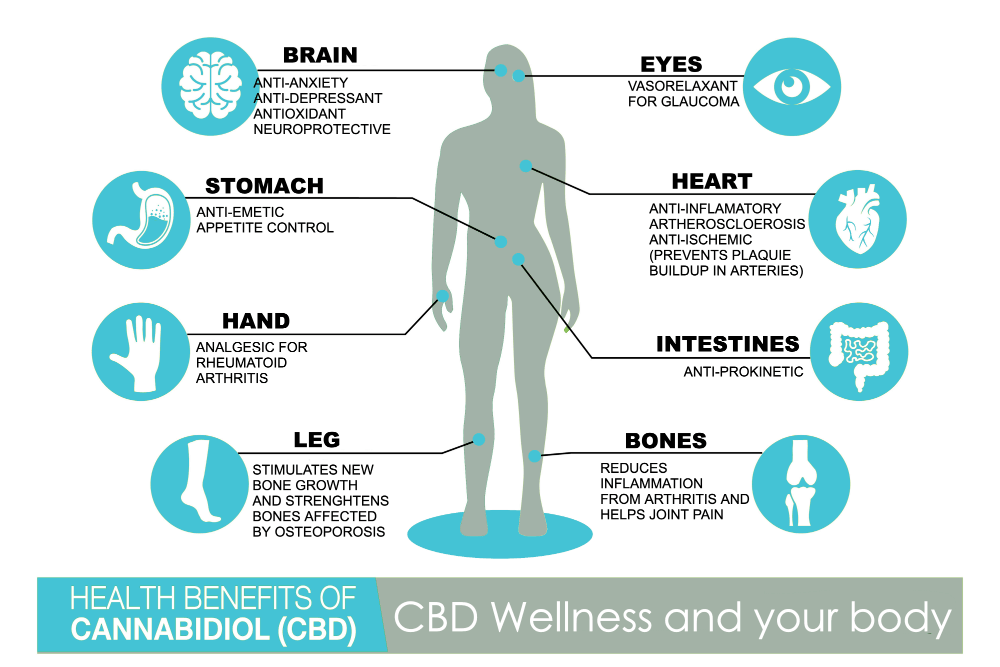 As popularity and anecdotal evidence mount, research is ramping up. Scientists are seeking to understand exactly how phytocannabinoids like CBD and THC affect our systems, and how to administer them properly. Already, a World Health Organization (WHO) report suggests CBD oil may have therapeutic benefits for numerous ailments including:
As popularity and anecdotal evidence mount, research is ramping up. Scientists are seeking to understand exactly how phytocannabinoids like CBD and THC affect our systems, and how to administer them properly. Already, a World Health Organization (WHO) report suggests CBD oil may have therapeutic benefits for numerous ailments including:
- Alzheimer’s disease
- Pain
- Psychosis
- Nausea
- Inflammatory diseases
- Rheumatoid arthritis
- Infection
- Parkinson’s disease
- Multiple sclerosis
- Huntington’s disease
- Hypoxia-ischemia injury
- Inflammatory bowel disease
- Cardiovascular disease
- Diabetic complications
To be clear, the fact that CBD is safe for humans is already well established. In one study, researchers gave people 1,500 mg per day of CBD for 4 weeks. None experienced withdrawal symptoms after the trial. Another study on Safety and Side Effects of Cannabidiol also found people tolerate doses up to 1,500 mg per day with no adverse affects.
The World Health Organization (WHO) concurs with these findings, saying that people usually tolerate CBD well. It won’t get you “high,” and it doesn’t carry the same addiction risk as smoking cannabis.
Nonetheless, in the interests of consumer safety, it’s important to acknowledge that widespread use of concentratred CBD is a new phenomenon and that there are risks. In order to be safe, it’s important to read what current research says about trying CBD if you are:
- Immune-compromised
- Currently taking prescription drugs
- Pregnant or trying to conceive
We still lack the clinical evidence needed to fully measure CBD’s effectiveness for various conditions, nor do we know the most effective formulations and dosages. However, there’s already a great deal of preliminary scientific evidence from laboratory experiments, animal models and case studies which has helped shape our general understanding so far.
Fortunately, the medical science community is catching up. According to ClinicalTrials.gov, a US database of accredited clinical trials worldwide, at least 150 trials testing CBD are currently in progress.
The General Rules
If you are thinking about using CBD oil to treat a health condition, please speak with your healthcare provider first to ensure it’s the right option for you and to make sure to avoid any unwanted interactions with medications you are on.
It’s also important to understand that Full Spectrum CBD Oil contains trace amounts of THC. Avoid driving or using heavy machinery when taking CBD oil, especially if you are just starting treatment or using a new brand.
Possible CBD Oil Side Effects
Though generally mild, CBD has been known to trigger a few side effects during clinical research. They vary in intensity from person to person and can include:
- Anxiety
- Changes in appetite
- Changes in mood
- Diarrhea
- Dizziness
- Drowsiness
- Dry mouth
- Nausea
- Vomiting
CBD Oil Side Effects on Your Liver
This is something to pay attention to especially if you suffer from liver disease. CBD oil may increase liver enzymes ALT and AST aminotransferases—which indicate inflammation. If living with liver disease, you should use CBD oil with caution. It’s highly recommended that you do so under the supervision of a medical professional, and to check your blood liver enzyme levels regularly.
If living with liver disease, you should use CBD oil with caution. It’s highly recommended that you do so under the supervision of a medical professional, and to check your blood liver enzyme levels regularly.
CBD and Pregnancy
Those looking to conceive might also have some concerns with CBD. Some evidence suggests regular cannabis users have lower fertility rates, although the effect might be minimal and likely caused by THC rather than CBD. However, anyone experiencing difficulty conceiving would be well advised to discuss using CBD with their doctor. The general rule is: avoid CBD oil during pregnancy and breastfeeding. A 2018 study from the American Academy of Pediatrics warns that marijuana during pregnancy poses potential risks to a baby’s development. Although CBD’s role is not understood, CBD can pass through the placental barrier.
CBD Oil and Low Blood Pressure
A concern for anyone dealing with low blood pressure is research indicating that CBD lowers blood pressure. While reducing blood pressure during stressful events may be a highly-touted benefit of CBD, it may also temporarily decrease your resting blood pressure. If you suffer from hypotension, monitor your blood pressure when trying CBD products or increasing your dose. If you frequently experience light-headedness when standing up too quickly, be cautious if you’ve just used a CBD vape pen or high oral doses of CBD.
CBD Oil and the Immune Compromised
CBD can calm down a hyperactive immune system and is a well known immunomodulator. Though some have expressed concern this may pose a threat to people whose immune systems are already impaired, like HIV sufferers, most research indicates these concerns are not warranted. Generally, the research shows cannabis relieving pain and other HIV-related symptoms without severe side effects. Marijuana, which contains high levels of THC and low levels of CBD, was tested against specific HIV symptoms like liver fibrosis and the cannabinoids did not appear to worsen it.
CBD Oil Side Effects from Drug Interactions
Though maybe not considered a CBD oil “side effect,” CBD can interfere with some medications. CBD inhibits the enzyme cytochrome P450 (CYP450)—which numerous drugs use for metabolization. By interfering with CYP450, CBD may increase drug toxicity or decrease their effectiveness.
The following drugs may interact with CBD:
- Anti-arrhythmia drugs like quinidine
- Anticonvulsants like Tegretol (carbamazepine) and Trileptal (oxcarbazepine)
- Antifungal drugs like Nizoral (ketoconazole) and Vfend (voriconazole)
- Antipsychotic drugs like Orap (pimozide)
- Atypical antidepressants like Remeron (mirtazapine)
- Benzodiazepine sedatives like Klonopin (clonazepam) and Halcion (triazolam)
- Immune-suppressive drugs like Sandimmune (cyclosporine)
- Macrolide antibiotics like clarithromycin and telithromycin
- Migraine medications like Ergomar (ergotamine)
- Opioid painkillers like Duragesic (fentanyl) and alfentanil
- Rifampin-based drugs used to treat tuberculosis
- Warfarin, anti-epileptics, HIV antivirals, chemotherapy and others
The warning may seem alarming, but most drug interactions with cannabidiol are mild and require little or no adjustment to treatment. In some cases what might be required is a drug substitution, or creating a dosing scheduling for CBD that ensures it is taken 3-4 hours apart 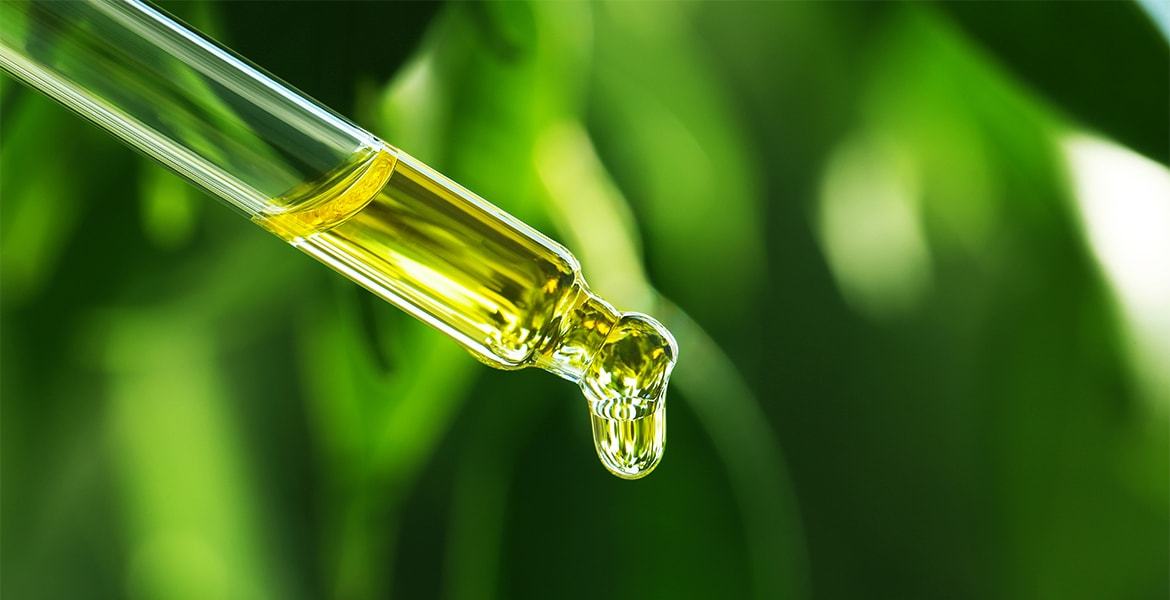 from other medications.
from other medications.
Please speak to your doctor or a medical professional to make sure you can avoid these types of interactions.
Potential CBD Oil Side Effects from Dishonest Producers
CBD’s popularity has unleashed a wave of innovation as entrepreneurs and corporations look to cash in on demand. The benefit to the customer has been massive growth in selection and options catering to nearly every need and desire. On the downside, some unscrupulous outfits may employ potentially unsafe manufacturing practices, while others offer products that do not contain what’s advertised. In either case, the potential for experiencing unpleasant CBD Oil side effects increases. Scientists recently tested a small sample of the CBD products on the US market, and although the small sample size may not give an accurate picture of the industry, they found that only 31% were accurately labeled.
What can these unreliable products contain?
- Pesticides and heavy metals from bad farming practices
- High levels of THC (more than desired)
- Synthetic cannabinoids
- Any kind of contaminants (mold, bacteria, rancidity, etc)
- Sometimes CBD products don’t contain any CBD at all — in which case you won’t experience any effects, positive or negative.
Pollutants appear in products for two main reasons: contaminated hemp hemp or adulterated CBD oil.
Hemp plants are efficient bioaccumulators, which means they readily absorb chemicals from the soil they’re planted in, for example mercury or lead. Any contaminants in the ground could impact hemp quality down the line. In addition, many producers use pesticides, chemical fertilizers and herbicides during cultivation, which can pollute the end product.
Another concern is the chemical residue left by CBD oil extracted with solvents. Butane and propane are both harmful to human health, but could end up in your CBD Oil. The cleanest form of extraction is supercritical CO2 extraction.
You can learn more about CBD extraction in our article about the difference between Full Spectrum CBD and Isolate.
Can Someone Overdose on CBD?
In short: No.
One great thing about CBD and other cannabinoids is that they are non-toxic, and no fatal overdoses have ever been reported.
In fact, the U.S. Department of Health and Human Services reported that there were “no signs of toxicity or serious side effects observed following chronic administration of cannabidiol to healthy volunteers, even in large acute doses of 700 mg per day.”
CBD Dosage and Preparation
Until medical research progresses, we won’t have a “correct” dose of CBD oil to recommend. Although the average dose probably ranges between 5 mg and 25 mg per day, serious conditions have been treated with doses in the 500-1500mg ranges as well. The general rule is “start low, go slow.” Start with a small dose and then increase it every 3-4 days by 5mg while keeping a record of any effects observed. After a month you should be able to identify which dosage was most effective for you.
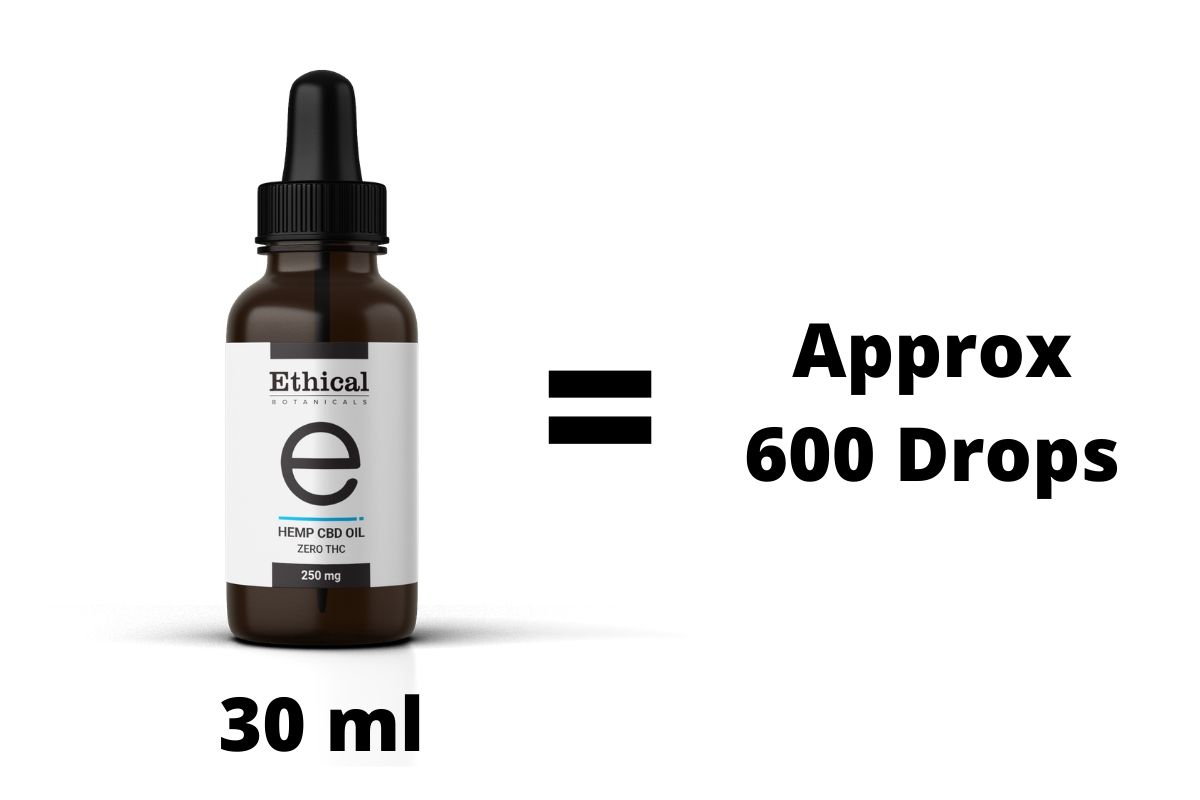 Generally speaking, a smaller dose makes people more focused and alert, and larger doses makes them more sleepy. Although there are no scientifically agreed upon doses for particular conditions, some general guidelines exist derived from the anecdotal evidence so far:
Generally speaking, a smaller dose makes people more focused and alert, and larger doses makes them more sleepy. Although there are no scientifically agreed upon doses for particular conditions, some general guidelines exist derived from the anecdotal evidence so far:
- Chronic pain: Take from 2 to 20 mg a day.
- Anxiety: Take from 10 to 20 mg a day.
- Epilepsy: Take from 200 to 300 mg a day.
- Glaucoma: Take from 30 to 40 mg a day.
- Insomnia: Take from 50 to 150 mg a day.
- Depression: Take from 2 to 10 mg a day.
As each person responds to CBD differently, the guidelines above may not work for everyone and should not be construed as medical advice.
How to Calculate Your CBD Dose
Most CBD oil comes in 30ml bottles with around 600 drops inside them (a drop is about 0.05ml). The easiest way to calculate dosage per drop is to simply divide the amount of CBD in the bottle by 600. For example, for a tincture with 1,500 mg in the bottle the calculation is:
1,500 mg ÷ 600 drops = 2.5 mg/drop.
Therefore if you wanted to start with 5mg, you’d want to take 2 drops of the hypothetical 1500mg tincture. For more info on this read our article What’s the proper CBD Dosage?
A few tips for finding quality CBD oil:
- Buy from trusted Canadian producers. Most Canadian producers have experience with cannabis and respect the integrity of the plant and the medicinal compounds it produces. Standards for growing and extracting CBD oil tend to be higher in a legal market with healthy competition. Also, check the product or company’s ratings online to see if they’ve been recommended.
- Try to find organic products. The best way to be sure a brand is organic is by checking their 3rd party lab tests and checking whether any pesticides have shown up.
- Read product labels carefully. If the oil is labeled “Hemp oil” or “Hemp seed oil,” there might not be any CBD in it whatsoever. Also, check whether there are any artificial flavorings or preservatives. Quality CBD should consist of a food-grade carrier oil, CBD and maybe a natural flavour. If there are more than 2-3 ingredients, make sure to check that the ingredients are all healthy.
For more tips for beginners, read our article CBD 101.
Learn more about CBD

CBD and Stress: How Cannabinoids Help You Stay Calm in a Busy World
If it feels like life keeps getting louder and faster, you’re not alone.Between deadlines, notifications, and never-ending to-do lists, most of us are
read more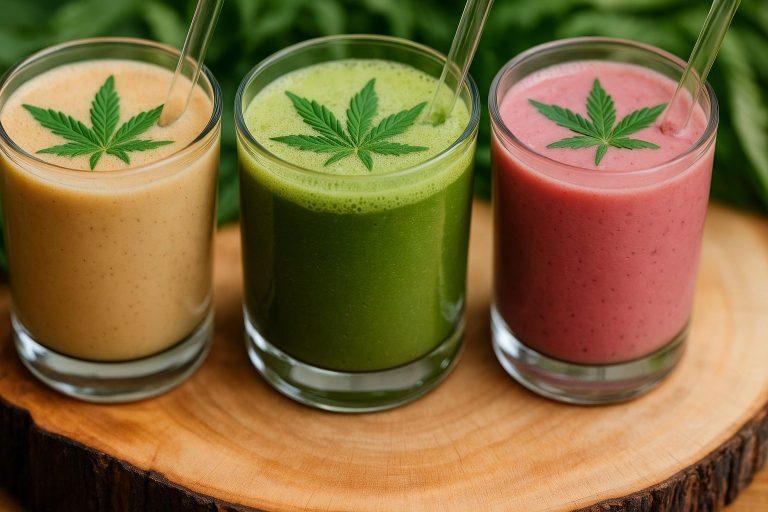
CBD Smoothie Recipes You’ll Actually Love
🥤 Simple, delicious ways to enjoy your daily CBD oil. Why Add CBD Oil to Your Smoothie? Smoothies are already a great way to
read more
A Calm Routine: How to Use CBD Skincare from Morning to Night
If your skincare shelf is starting to look more like a science lab, you’re not alone. These days, there’s a serum or cream
read more
From Mouse to Marathon: Can CBD Support Endurance Through the Gut?
Gut health has become a growing focus in the wellness world, and for good reason. The gut microbiome affects digestion, immunity, and even
read more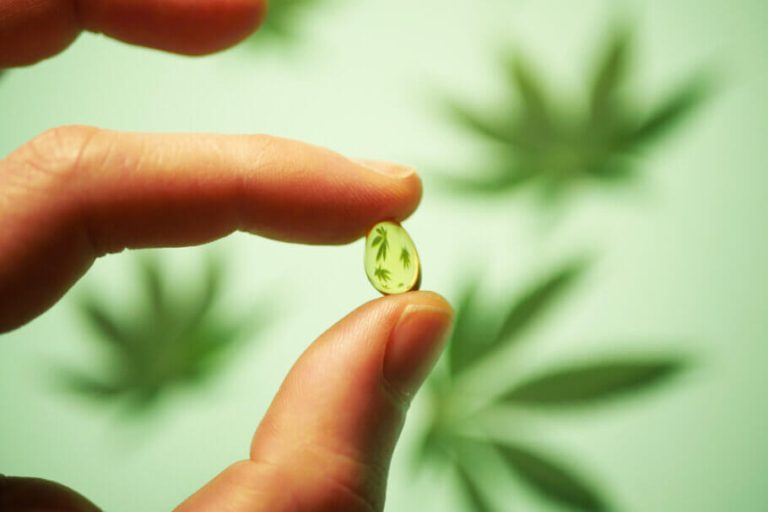
Microdosing CBD: Why Less is More
Many assume that more CBD means better results, but that’s not always true. Instead, taking smaller doses more frequently may be a smarter
read more
Sleep Naturally: How CBD, CBG, and CBN Can Enhance Your Rest
Quality sleep is essential, yet modern lifestyles often leave us restless. With rising stress levels and digital distractions, many are turning to natural
read moreThis information does not constitute medical advice and it should not be relied upon as such. Consult with your doctor before modifying your regular medical regime. Our websites content is provided as a service; all content is solely for informational purpose only and is intended to facilitate communication between you and your healthcare provider. We do not represent in any manner whatsoever that the content of our website contains the opinions of a healthcare professional.

